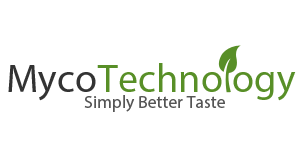Innovation among different sectors is all about mushrooms these days. It is hard to go a day by without seeing the words “fungi” or “mycelium” in your feed. Worldwide, the mushroom sector is experiencing a boom in interest, with different outcomes – from fungi entrepreneurs and big companies creating textiles, papers, foams, and leather, to a wide range of food alternatives based on mycelium. Apart from plant-based proteins, companies in foodtech are also harnessing mushroom fermentation to develop more sustainable food solutions. Also, researchers are adopting mushrooms to new sustainabilty methods, such as finding a clear solution to dirty water with a type of mushroom.
Get into detail about these examples, and more, in the recent article published by GreenQueen.
Centering in the foodtech spectrum, mushroom-based protein (also known as mycoprotein) seems to be catching up with plant-based and cell-based solutions in popularity. The world’s first large-scale mycoprotein facility was announced in May 2020 with the mushroom-protein market in foodtech expected to grow by 12% between 2019 and 2027.
Don’t loose sight of these 6 startups using mushrooms in foodtech solutions:
Mushlabs
Biotech startup Mushlabs secured $10M in a Series A funding in 2020 for its mushroom-fermentation technology, led by VisVires New Protein, Redalpine, and with participation from existing investors including Hong Kong-based Happiness Capital. The German-based startup now holds more than $12.2M in funding. They are planning to use it to ramp up its production and B2B distribution.
So, how does it work? The company uses liquid fermentation technology to grow mycelia, i.e. the root of the mushroom. Mycelia can help create alt proteins and plant-based products in a sustainable way. The mycelia are grown in a controlled environment. Also fed with byproducts from other agrifood industry areas like farming and food processing. This is sustainable in terms of using byproducts and promoting zero waste. Additionally, it requires fewer resources like land and water. Consequently, it is perfect for feeding a growing population or preventing food shortages.
MycoTechnology
MycoTechnology is a fungi-based startup that creates a portfolio of functional ingredients described as “better-for-you” products. These are great to develop meat alternatives, dairy alternatives, and baked goods. The most prominent is ClearTaste, which helps mask bitter tastes. Another product is PureTaste plant protein, which packs 77 percent protein, made from pea and rice protein fermented by shiitake mycelia. Cleartaste has been the most successful, used by companies that want to reduce the amount of sugar used. Indeed, it is often used in products sweetened with stevia to mask the aftertaste.

Meati Foods
Meati Foods debuted its minimally processed Meati Steak made from mycelium, which grills and sears just like an animal steak. Earlier this year, the startup announced a Series B raise of $50 million for its mycelium-based whole cuts of meat created through fermentation. In more recent news, celebrity chef and food activist Tom Colicchio communicated he is joining Meati Foods’ team of investor-advisers as he sees mycelium-based meats as a scalable and sustainable solution to democratize whole food nutrition. The company is currently undergoing rapid scaling of production ahead of a national launch in 2022.
Meati Foods boasts that its mycelium steak produces 20x more protein per acre than soy. That is thanks to its naturally fibrous structure requiring minimal processing to replicate a meaty taste and texture. Its mycelium grows in fermentation tanks, similar to the practice of beer brewing, only requiring water, sugar, and nutrients.

Mycorena
Swedish-based Mycorena announced in the past year it had secured over 1.2M euros in funding to help scale its novel fungi-based protein ingredient, Promyc®. They also have plans to open a facility in Falkenberg, Sweden by 2022. The startup launched only a year ago but has already produced fungus protein for use in vegan food products. In addition, it is a potential alternative to traditional proteins like soy.
Recently Mycorena unveiled their creation of fungi-powered fats which will help plant-based meat producers achieve the taste and textural complexities of the meat-eating experience, making vegan steaks juicier.

Innomy
Innomy is redefining the concept of meat through mushrooms. Indeed, the startup is using Fungi-based meat to replicate the experience of consuming the juicy and delicious taste of its animal counterpart. But, with low environmental impact and with the nutritional benefits of mushrooms. The fungal tissue culture process allows Innomy to achieve complex structures that replicate the fibrous and tender consistency of meat with few ingredients. Innomy is a Spanish startup, finalist of the Spain Foodtech program by Eatable Adventures.

Libre Foods
Libre Foods is a Barcelona-based startup on a mission to liberate the food system through delicious, nutritious and sustainable whole-cut products grown from fungal mycelium. They are the first movers in the EU scaling out fermentation technologies enabling the production of whole-cut meat alternatives that look, cook and taste better than meat. The startup’s first product is a fungi-powered beef steak, followed by a line of red meats, poultry and seafood. Libre Foods recently presented their fungi-based bacon product created using fermentation (precision) technology.
These are a few of the many startups we expect to see in the mushroom foodtech sector. As mushrooms in foodtech become more popular, we cannot wait to see all the new innovations that will arise.
Liked this article? Read our previous one on 5 Cell-Cultured Fine Foods.

